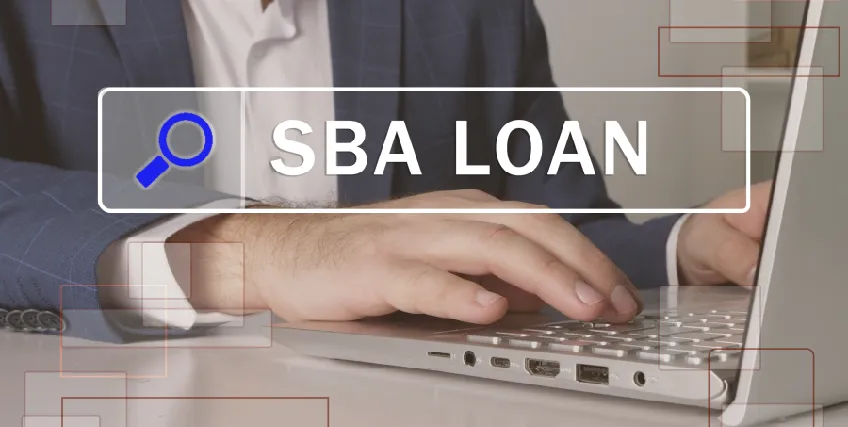What is a Payroll Loan and Does Your Business Need One?
October 27, 2025 | Last Updated on: October 27, 2025

When running a business, managing cash flow effectively is crucial to sustaining operations, especially when it comes to paying your employees on time. In times of financial shortfalls, many businesses consider taking out a payroll loan.
We'll explore the ins and outs of business payroll loans, their potential benefits and drawbacks, and whether this type of financing is the right solution for your business during challenging times.
Key Points:
- A business payroll loan can help small business owners pay their employees without disruption.
- Loans through payroll are a lifeline. Business owners shouldn’t rely on these regularly.
What Is a Business Payroll Loan?
A payroll loan is a lump sum, short-term financing solution for business owners to cover employee wages during periods of cash flow shortages. These loans provide immediate access to funds, ensuring payroll obligations are met on time despite temporary financial challenges, and are typically repaid within a few months to bridge short-term gaps rather than serve as long-term debt.
Businesses often seek payroll loans during unexpected revenue delays, seasonal dips, or unforeseen expenses. Available from banks, online lenders, and other alternative lenders, these loans can be vital in times of need. However, they often come with high interest rates and fees due to their urgency and short repayment terms, making it essential for businesses to carefully consider the costs and terms before committing.
Comparing Business Payroll Loan Options
When comparing types of payroll loans along with other financing options, traditional banks offer the most affordable rates and favorable terms for businesses with a strong credit score. However, they often require lengthy approval processes and extensive documentation to determine eligibility, making them less suitable for urgent lending before payday. While banks typically offer lower interest rates, the loan application process for borrowers can take weeks, which may not align with the immediate payroll needs of many businesses.
Online lenders provide quicker access to funds with more lenient approval requirements, but these benefits come at a higher cost. Online payroll loans often carry higher interest rates and fees, especially for businesses with less than ideal creditworthiness.
Other options like a business credit card would be ineffective to help business owners cover payroll expenses because of their inflexible repayment periods.
Like any other short-term business loan, it’s best to shop around to get the best lending terms based on interest rate, origination fees, and loan amount needed.
When Does a Business Need a Payroll Loan?
Businesses may find themselves in need of a payroll loan during various financial challenges that affect their ability to meet payroll obligations. One common scenario is experiencing unpaid invoices from clients or customers, which can disrupt cash flow and create a gap between when expenses are due and when revenue is received. In these instances, a payroll loan as part of your working capital can provide the necessary funds to ensure employees are paid on time.
Another situation that may necessitate a loan for payroll is seasonal fluctuations in revenue. Many businesses experience peak seasons followed by slow periods, leading to cash flow gaps. For example, retailers may face cash shortages after the holiday season when expenses remain high but sales decline. Additionally, unexpected expenses—such as equipment repairs or emergency costs—can strain finances. In these cases, payroll lending can serve as a quick fix to bridge the financial gap and keep operations running smoothly.
Bottom Line
Loans for payroll can be a valuable financial tool for businesses facing cash flow challenges that threaten their ability to meet payroll obligations. While they offer immediate relief and ensure employees are paid on time, it’s essential to weigh the terms and interest rates against your business’s overall financial health and future cash flow projections.
By carefully evaluating your needs and exploring various loan options, you can make an informed decision that supports your business's stability and growth. Ultimately, a payroll loan may serve as a necessary funding option during tough times, allowing you to keep operations running smoothly.
FAQs about Payroll Loans
What is payroll funding?
Payroll funding is where a company receives immediate cash advances to make sure wages are paid on time. This funding is great for a staffing agency who pay hundreds of workers at once.
What are the requirements for payroll funding?
Businesses typically need a steady client base, verifiable accounts receivable, and a stable financial history. Lenders may also require proof of revenue documents as well.
What are the benefits of payroll financing?
Payroll financing provides businesses with immediate funds to cover employee wages, helping maintain cash flow during tight periods.
What is the difference between payroll funding and a traditional loan?
Payroll funding provides businesses with immediate cash based on outstanding invoices, directly tied to payroll needs, without incurring long-term debt. In contrast, a traditional loan is a lump sum provided by a lender, which must be repaid over time with interest, regardless of specific business expenses like payroll.
Can I use an SBA loan for payroll?
Yes, SBA loans can be used to pay for payroll.




